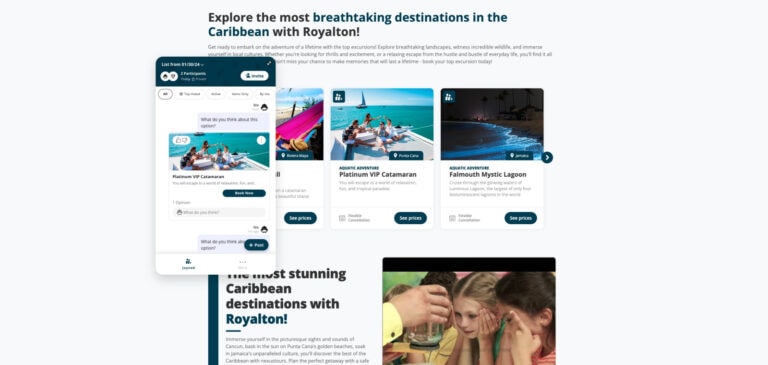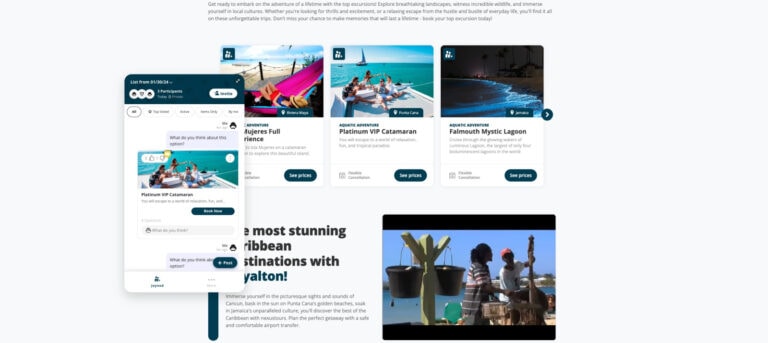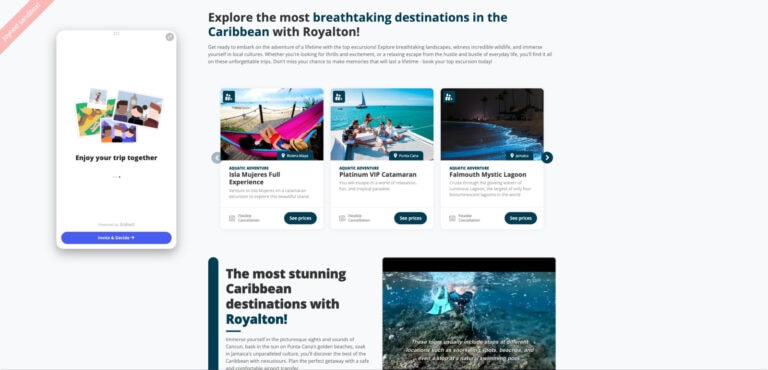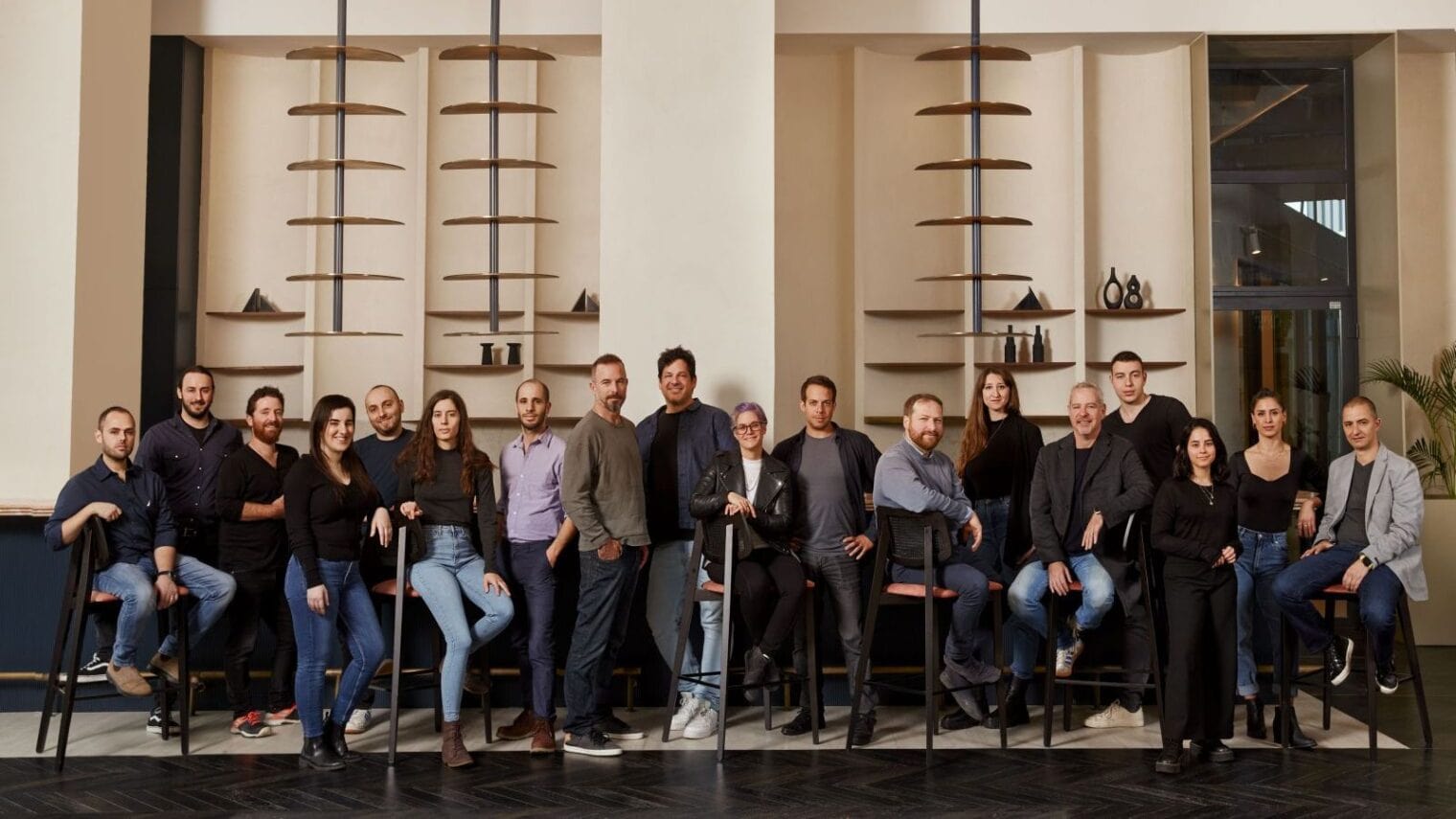Planning an overseas trip with family or friends can be cumbersome. Usually, one person does all the research and presents the details to the others.
That last step, explains Michael Levinson, cofounder and chief product officer for the Jerusalem-based startup Joyned, typically involves scheduling a face-to-face meeting, connecting a laptop to a TV screen in the living room and discussing the options.
If that sounds familiar, it’s because 80 percent of trips these days consist of more than one person, according to Adweek.
Yet, the in-person booking and decision-making process is not how young people in the 2020s – we’re looking at you, millennials and Gen Zs – communicate in a social milieu where everything is handled via texting and chat.
“Some 82% of millennials and Gen Z members say they make a purchase based on a recommendation from a friend or a family member,” Levinson says.
“Fifty-six percent of the buying power in the US comes from these groups, who today spend their time taking screenshots from travel sites and sending them over WhatsApp and SMS. That’s a bad experience. Merchants are losing out.”
The biggest problem for merchants is that if a customer researching travel options has to leave the site to send text messages, that person might never come back.
“The site paid so much to get them and now they force them to leave?” Levinson asks incredulously.
Joyned has developed technology that simplifies the process and is designed to appeal to all ages, not just the plugged-in generation.
No apps or downloads
While plenty of websites help travelers find “buddies” to share their adventures or find accommodations – such as Travello, UNBLND, Worldpackers and Travel Buddy – Levinson points out that these are all B2C (business-to-consumer) and require using a dedicated website or app.
Joyned took a B2B approach instead. “We partner with the travel booking engines, the hotel and airline sites. So, you never have to leave the booking site to use Joyned,” says Levinson.
Since Joyned is integrated into a travel site’s backend, there are no downloads or installations for a user to complete.
Joyned adds an icon or text next to any items you’re looking at – flights, car rentals, hotels –indicating the option to click and “plan together.”

Once you click the button, a pop-up window opens that allows you to tag any item, start a discussion thread with fellow travelers, share comments, likes, rankings and, ultimately, come to a group decision – all online.
Joyned summarizes rankings, bringing the top-voted hotels, flights or destinations to the top of the group chat.
“One person in the group may say, that picture doesn’t look so nice. Another person might not like the location or may care more about safety. The administrator can see all the feedback,” Levinson says.
Joyned charges customers a per-use or per-booking fee.

Fresh infusion of funds
ISRAEL21c spoke with Levinson while CEO Jonathan Abraham was as a combat paramedic in the Israel Defense Forces’ war against Hamas. Some of the other 20 staffers are also on reserve duty.
Levinson says although the war has affected the internal operations of Joyned, it has not affected the company’s customers, who range in location “from Australia to Argentina.”
Offering a timely turn of phrase, Levinson says “our company has soldiered on, as usual.”

Investors apparently feel confident in the company. Joyned, established in 2017, just raised an $8 million Series A round on top of a previous $4 million seed round.
Highest on the wish list for the new financing: enabling each traveler in the group to pay directly, rather than requiring the leader to pay the entire amount and then get reimbursed by each group member through an online payment system, which is how Joyned currently works.
In terms of its partnerships with travel companies, Joyned’s biggest coup to date is a partnership with Amadeus, the largest IT provider in the tourism space.
“Between 50% to 80% of all players in the worldwide travel industry are their customers,” Levinson says. “They’re a 30 billion euro company. They refer us to their customers and resell our tech. They’ve been one of the key drivers of our growth.”
In addition to Amadeus, Joyned is partnered with:
- NexusTours, a destination management company serving the Caribbean, Central America and North America with a choice of 58 different trip options.
- TravelUp, a U.K.-based hotel booking and package holidays vertical with plans to expand into flights.
- RIU Hotels, a Mallorca-based global chain of over 100 hotels and holiday resorts across 20 countries including Spain, where it’s ranked the country’s second largest.
- OYO Vacation Homes, one of Europe’s leading holiday home rental companies.
- Gratifi, which offers loyalty and engagement programs in Australia, New Zealand and Singapore.
The partnership with Grafiti in Asia makes sense: The lead investor on Joyned’s Series A round is Reach Markets, an Australian private equity company. Sentor Investments and Lucerne Investment Partners, also based in Australia, and Velocity Ventures, a Singapore VC, joined the round as well.
Private by design
With the global hospitality industry expected to surpass $4.6 trillion by the end of 2024, the incentive for travel sites to implement Joyned is strong.
“Travel sites can typically enjoy a higher conversion rate of 10%,” noted Abraham when the Amadeus deal was announced in 2023. The average online conversion rate – that’s where a visitor becomes a paying customer – is a paltry 1.8%.
“Social booking is such a big topic in the travel industry at the moment and we are currently the only company to offer an off-the-shelf solution for travel websites.”

Travel sites using Joyned can grow the average booking value of users by 25%, the company claims. Joyned also generates an invite-to-website click-through rate of 90%.
Another incentive for travel sites is data: Joyned uses AI (artificial intelligence) to scan what users are chatting about, what items they’ve tagged, where they are in the checkout process and more. Travel sites can target promotions based on session activity, user conversations and intent.
No personal data is collected – users don’t even need to register.
“I don’t need to know that someone in particular said something about a hotel,” Levinson explains. “I just need to know what you said. We automatically sanitize all data from personal information. We built the business to be fully GDPR-compliant and private by design.”
Like a bridge
In its seven-year existence, Joyned has scored awards including most successful scaleup at Hustle 2023, most innovative travel tech solution at the Technology Innovator Awards and best technology product award at last year’s Travolution Awards.
When we suggested to Levinson that Joyned could be described as a kind of “DoorDash or Wolt for travel,” both of which have group ordering functionality, Levinson disagreed.
“We’re more like a bridge. We realized that two major industries – social media and ecommerce – were disconnected,” he explained.
“PayPal brought banking and ecommerce together as an intermediary. We want to do something similar. If millennials and Gen Zs shop and talk online, they should be able to talk while they shop, too.”
For more information on using Joyned, click here.

















